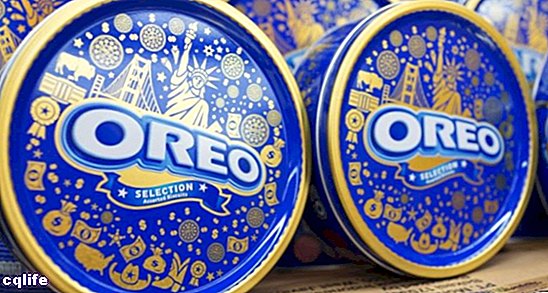- What is a product?
- Product types
- Characteristics of a product
- Product examples
- Product in chemistry
- Product in mathematics
We explain what a product is in economics, its types and characteristics. Also, the product in chemistry and mathematics.

What is a product?
In the world of economy and the business, a product is the good or service obtained at the end of the production chain, that is, from the transformation of raw Materials in manufactured goods or services to provide.
Everything around us has been produced in one way or another, natural or artificial, thanks to human intervention. Even if the latter is limited to harvesting or extraction. And for that reason, today, practically everything is a product, comparable to a good.
In the commercial circuit, the products are elaborated, distributed and finally consumed by the natural people Y legal persons who need them, in exchange for the payment of their price in money or credit.
For this, it must compete with the other products of other Business. Therefore, the marketing or marketing is in charge of making it visible, considering it one of its “four P's” or fundamental aspects: product, place, price and promotion.
Now, the products as such can be objects of a very diverse nature, tangible or intangible, from goods, services, ideas, experiences, events, property rights or shares in a company, to name just a few examples.
Product types
Products can be classified as tangible or intangible, depending on whether they are physical things or not. On the other hand, according to their purpose or "purchase situation", they are classified as:
- Goods of consumption. Of limited usability, they are consumed quickly and have a short life, such as food, fruits, groceries, etc.
- Services. Activities, uses and benefits that are consumed at the time of loan, such as haircut, housework, appliance repairs, etc.
- Common use goods. Those products that are part of the usual basket and are consumed quickly, such as textiles, shoes, etc.
- Emergency goods. Products that citizens consume in extraordinary situations, but that are normally available in case of need, such as fire extinguishers, spare parts for artifacts, etc.
- Durable goods.Products with a very long life cycle, whose need for replacement spans years or even decades.
- Specialty goods. Those goods endowed with very particular characteristics destined for a hyperspecific consumer market, such as medical supplies, technology military, etc.
Characteristics of a product

Most products have some of the following attributes:
- Formulations and ingredients. Those substances and materials from which they are made, and which should normally be reflected in the packaging, so that the consumer know what you consume. This is particularly true in the case of consumer goods, since it is not as important in other types of goods, as in steel products.
- Dimensions and physical characteristics. Products possess a set of physical characteristics (size, density, thickness, etc.) that characterize them, especially those produced in series, and that normally obey standardizations such as ISO standards, for example.
- Components and functions. All products serve a purpose, that is, they satisfy some need, either thanks to their specific components (as in the case of medicines and their active ingredients), or their general formulation.
- Packaging and presentation. All product is offered in some type of packaging or container, that is, in a container that protects it until it reaches the final consumer. In some cases, such packages or containers may be the product themselves.
- Finiteness and relative scarcity. All products are finite, that is, they require a continuous and constant manufacturing process, without which they would simply run out. This means that they are relatively rare, although the need we have for them may, in general, be infinite.
Product examples
Virtually everything around us is a product: from the canned and processed food we consume, the cleaners and detergents we use to clean our homes and the drugs with which we fight disease, to the utensils with which we cook and eat, the tools and the furniture of our home.
Even basic services (electricity, telephony, Internet, sewage and garbage collection) are products that a supplier supplies us. Everything we pay for is, in one way or another, a product.
Product in chemistry
In chemistry, the term product is used with a different meaning from what we have discussed so far. In this case, the substances obtained by means of a chemical reaction of some kind, involving two or more reactants to form a product. This term is used regardless of the nature of the chemical obtained.
Product in mathematics
Similarly, in the field of math it is usual to talk about a product. In this area, the term is used only to refer to the result of certain formal-logical operations, such as multiplication or certain binary operations used in very specific contexts.
The use to call the result of the multiplication is perhaps the most common, as evidenced by the adage that states that "the order of the factors does not alter the product."
